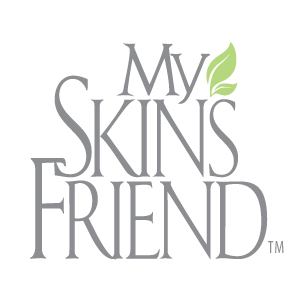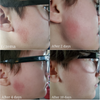Fighting the new epidemic of skin rashes and other issues that have resulted from wearing face coverings
Looks like face masks are here to stay a little longer so in response to complaints of skin rashes, acne and other issues that have popped up as a result of long-term mask wearing, let’s take a look at ways you can help make these new items less stressful and damaging on your skin.
 For all the good masks allegedly do, you may be noticing a few annoying problems beyond foggy glasses like itchy skin, pesky pimples, and oily blackheads, to name a few.
For all the good masks allegedly do, you may be noticing a few annoying problems beyond foggy glasses like itchy skin, pesky pimples, and oily blackheads, to name a few.
That’s because constantly wearing a face mask can inadvertently do a number on your skin. How? Well first, the constant friction as you talk, laugh, smile and even breath can damage the outer skin layer, leading to irritation and inflammation.
Second, masks trap humidity, sweat, and oil on the skin. In turn, this creates an environment that encourages microorganisms to flourish, worsening conditions like acne and rosacea.
While the CDC and local health officials mandate the use of face masks, what do you do if you develop skin problems due to the constant covering? You can mitigate any potential damage by giving your skin a bit of self love and by taking care of your face coverings properly.
First, wear a skin-friendly face mask.
Not all masks are created equal, at least when it comes to keeping your skin clear. Some dermatologists recommend a cotton mask. As we know, natural fibers are gentler on the skin compared to synthetics, and less likely to cause skin irritation.
Cotton masks are especially helpful during exercise when there’s increased friction and moisture around your face. To keep them from being extra rough on the skin, choose a 100% cotton material.
Avoid makeup and use sunscreen.
When you think about it, wearing makeup under your mask doesn’t make sense. Besides not being seen, it may also become trapped on the skin, block the pores, or increase skin irritation. Since no one will see underneath your covering anyway, it’s easier than ever to give your skin a break and go foundation-free.
But just because you have a mask on doesn’t mean you’re safe from sunburn. Applying an organic, noncomedogenic product is recommended to help prevent clogging pores. We recommend My Skin’s Friend organic SPF-30 applied lightly before masking up in the morning. Make sure you cover your entire face to help you avoid a dreaded mask tan. Yes, like the much known “farmers tan” we are now seeing mask tan lines among long-term wearers.
After Mask Care
So you finally get home and have the much anticipated pleasure of slinging that face bra off. What now?
It’s time to show some love to that pretty face. After washing your hands, let’s do some first aid to keep your skin healthy and glowing.

We recommend cleansing with organic mineral cleanser to remove the sunscreen. My Skin’s Friend organic mineral cleanser is very gentle and deep cleans without disturbing the natural bacteria barrier or drying it out.
This gentle cleansing will remove any built-up dirt, oil, and stray mask fibers, without stripping the skin.
Once you’ve patted your face dry, apply a light coat of either our Kigelia Luxury Moisturizer. In addition to providing unparalleled moisture replacement, Kigelia also helps restore the electrical balance with it’s 80 minerals including gold and platinum. It is simply the best moisturizer you can buy and it’s all organically formulated. If you prefer a less expensive solution, our organic honey-aloe, sweet potato or Melon Fresh lotions are also excellent organic moisturizers and will help feed your skin with nutrients extracted from plants.
Wash your mask the right way.

The CDC says that masks should be routinely washed depending on the frequency of use, which is technically once per wear, especially if you’re exercising. But remember that the detergent you wash your mask with can also cause skin issues. We recommend a mild, organic wash. Always rinse thoroughly too to make sure all the soap has been removed so it doesn’t bleed onto your skin once the mask gets warm and moist from long-term wear.
Check in with a dermatologist.
If you’ve tried the steps above and you’re still dealing with random breakouts, it might be time to make an appointment with a board-certified dermatologist. Most dermatologists are now seeing patients through video visits but some might see you in their office and of course, they are trained to recognize and remedy most skin problems.
We're all in this together and at My Skin's Friend we're ready, willing and able to help however we can to keep your skin looking healthy until we can all unmask again.























 Some customers have told me that they apply a thin layer of cocoa butter or other natural lotion like MSF
Some customers have told me that they apply a thin layer of cocoa butter or other natural lotion like MSF 


 That's it! That's all you need to have a cool looking tan. And when people ask where you got your beautiful tan, tell 'em Tahiti!
That's it! That's all you need to have a cool looking tan. And when people ask where you got your beautiful tan, tell 'em Tahiti!



